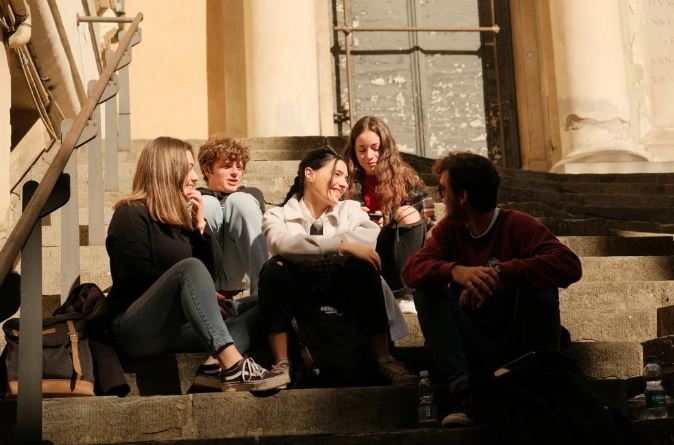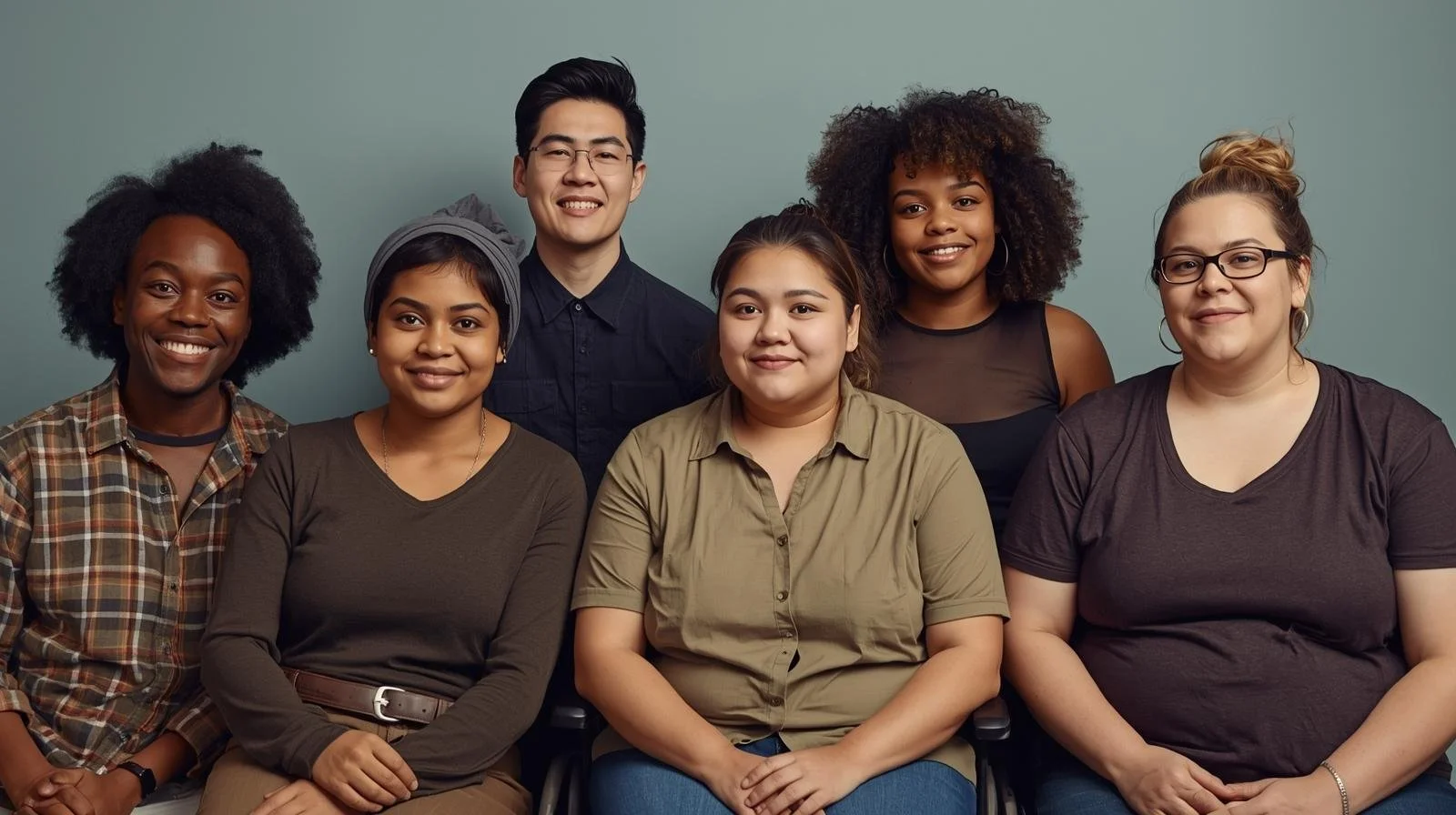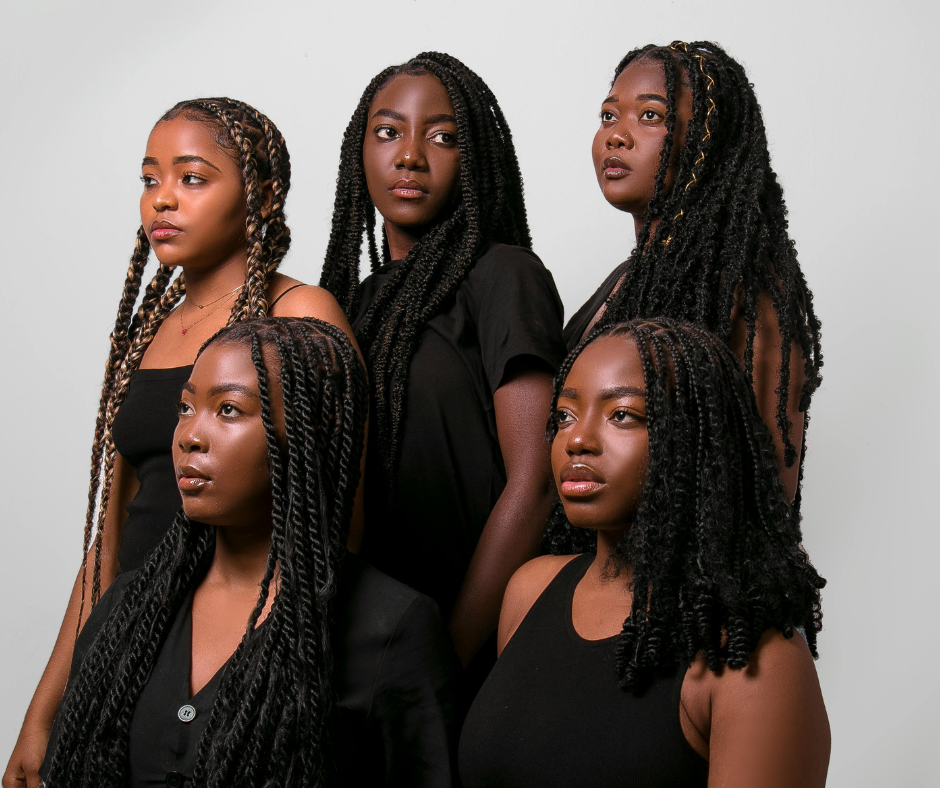
Mutual Aid as a Shield Against Ableism in Our Communities

People-Pleasing Isn’t a Personality Trait: How Trauma and Neurodivergence Reinforce It

The Value of Community and Mutual Aid for AuDHDers: Why Connection Matters for Autistic ADHD Brains

When Violence Lives in Our Bodies: How Political Violence Becomes Somatic and Hits People of Color Especially Hard
Political violence isn’t only something you see on the news or protest signs. It lives in our bodies. It shows up in constricted breathing, shattered sleep, chronic pain, hyper-vigilance, and nervous systems that never get to switch off. For many white Americans, state violence looks like a headline. For people of color, especially Black, Indigenous, and immigrant communities, it is daily lived experience—a trauma that embeds itself in muscle memory, nervous system regulation, and collective history.

New Year's Resolutions Are Bullsh*t: A Neurodivergent Survival Guide
It’s January , which means your Instagram feed is about to become a hellscape of sunrise alarm clocks, meal prep containers, and people who are definitely going to run a marathon this year (they won't).

How to Tell Your OCD Brain to STFU: The Sensory Cue Survival Guide

Getting Everything Just Right for the Holidays: OCD, Family Expectations, and the Pressure to Be Perfect

10 Tips to Get Neurodivergent Hyperfocus to Work for You
Let’s be real — hyperfocus is both a superpower and a trap. For people with ADHD or autism, it’s that glorious zone where the world disappears and you can do ten hours of work in what feels like ten minutes.
But it can also mean you hyperfocus on the wrong thing — like color-coding your playlist instead of finishing that report, or spending six hours researching the physics of lava lamps instead of paying bills.
And sometimes, hyperfocus doesn’t just steal your time — it hijacks your basic needs. Hours go by without food, water, or rest. Your body whispers, hey, remember me?, but your brain’s too deep in the tunnel to notice. Over time, that’s what leads to dysregulation and burnout — not because you did something wrong, but because your focus forgot the rest of you exists.
Still, hyperfocus isn’t the enemy. It’s just energy — intense, powerful, and directionless until you aim it. The trick is learning to harness it without losing yourself to it.
If your to-do list has turned into a mountain of “I’ll get to it later,” here are ten ways to get your neurodivergent hyperfocus to work for you instead of against you.

ADHD Holiday Survival Guide: Why Everyone Secretly Hates You (Spoiler: They Don't)
The holidays: twinkling lights, warm vibes, festive gatherings, and — if you've got ADHD — the bone-deep certainty that everyone at the party thinks you're annoying.
Welcome to Rejection Sensitive Dysphoria (RSD) season, where the tiniest hint of disapproval hits like emotional whiplash and you're suddenly convinced your own family is secretly plotting to uninvite you from Thanksgiving.
Let's break down the ADHD-holiday-RSD shitstorm, why December turns you into a fragile Victorian child clutching pearls, and how to survive without spending the season hiding in your car stress-eating peppermint bark.

Holiday Burnout as an AUDHDer: What It Looks Like, How to Cope, and How to Protect Your Peace (Without Setting Anything on Fire… Probably)
Ah yes, the holidays. That time of year when society collectively loses its mind and decides the only acceptable emotional state is festive. If you’re an AUDHDer, this expectation feels less like a celebration and more like a full-contact sport that no one warned you about.
Because let’s be honest: half of the “magic” of the season is actually just sensory chaos, unpredictable schedules, and people demanding togetherness as if it’s a moral obligation. Meanwhile, your nervous system is in the corner whispering, “We talked about this. We can’t do chaos.”

When the Clock Betrays You: How Daylight Savings Throws Off Routines for ADHD Brains
There’s something quietly cruel about the twice-a-year ritual of changing the clock. You go to sleep feeling “normal,” and you wake up with your cue-card in a foreign language. Suddenly your body, your brain, your routines have been hijacked. For folks with Attention Deficit Hyperactivity Disorder? Yeah — it’s worse. The hour shift might seem small. But for a brain that already needs structure, rhythm, and predictable safety lines, it can feel like the ground has given way.

From our very own Rainn stone: Surviving the Holidays as an Autistic Person With ARFID or Eating Disorders

Seasonal Depression, ADHD, and Autism: How to See It Coming and Fight Back
The days get shorter and suddenly everything feels impossible. If you have ADHD or autism, seasonal changes hit different — disrupted routines, light deprivation, and holiday chaos can wreck your already-struggling executive function. Here's why winter makes neurodivergent brains worse and what actually helps.

Thanksgiving, Truth-Telling & Neurodivergent Boundaries: My Experience as an Indigenous Psychologist
Thanksgiving has always landed a little sideways for me.
Not because I hate gratitude, or mashed potatoes, spending time with chosen family, or cozy sweaters — I love all of those.
It’s the other stuff:

Understanding the Different Types of ADHD: Inattentive, Hyperactive, and Combined
If you've ever heard someone say "you don't seem like you have ADHD" or "but you're not hyperactive," congrats—you've encountered one of the most frustrating misconceptions about ADHD. The truth is, ADHD shows up differently in different people, and understanding these differences matters not just for getting the right support, but for recognizing that your experience is valid even if it doesn't match the stereotype.

Community Access for Disability Inclusion (CADI): Creating Real Options for Disabled Minnesotans
Minnesota’s Community Access for Disability Inclusion (CADI) waiver exists to make sure people with disabilities can live, grow, and thrive in their own homes and communities while getting the care they need. It’s about more than services — it’s about dignity, autonomy, and belonging.

Understanding Rejection Sensitive Dysphoria in ADHD

5 Ways Neurodivergent Folks Can Use Tarot & Rituals for Self-Connection This Halloween

“Before People See the Autism, They See My Race”: Masking, Belonging, and the Reality for Black Autistic Girls in UK Schools

Transitions as Grief: Honoring the End of Summer in Neuro-affirming Ways (Because Change Is Hard, OK?)
Discover neuro-affirming ways to honor the grief of seasonal transitions and ease the end-of-summer shift. Support yourself through change with compassion and understanding

